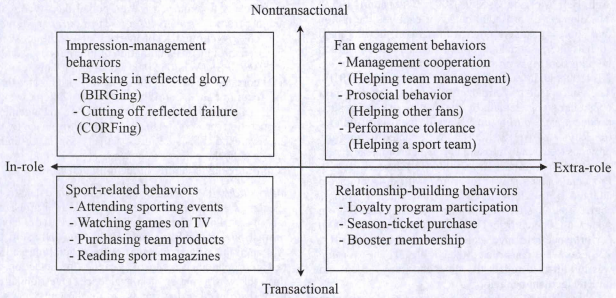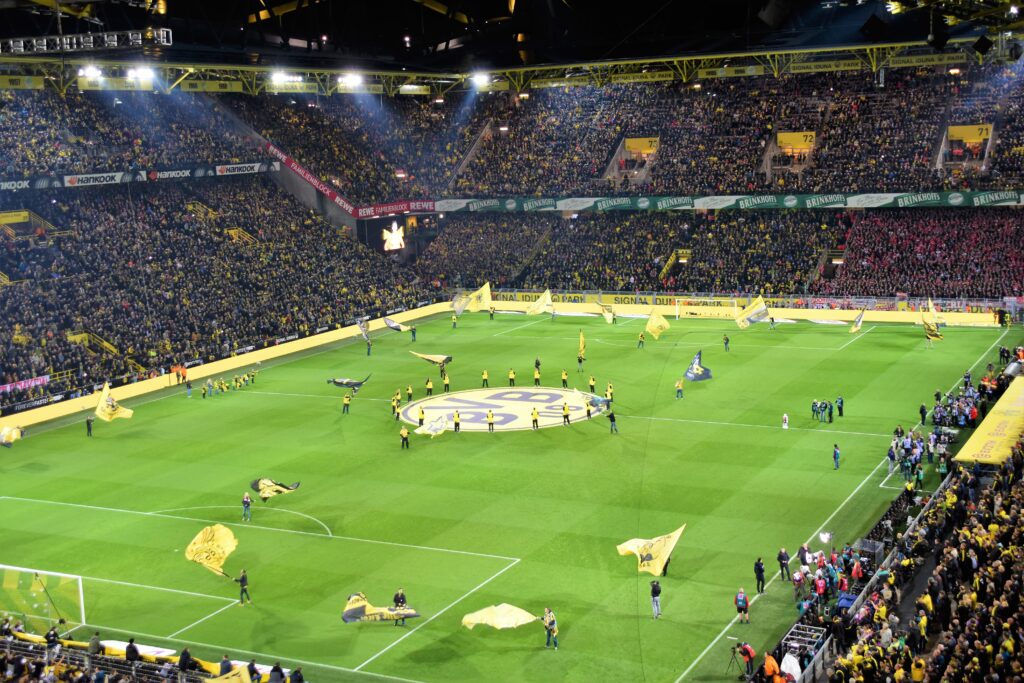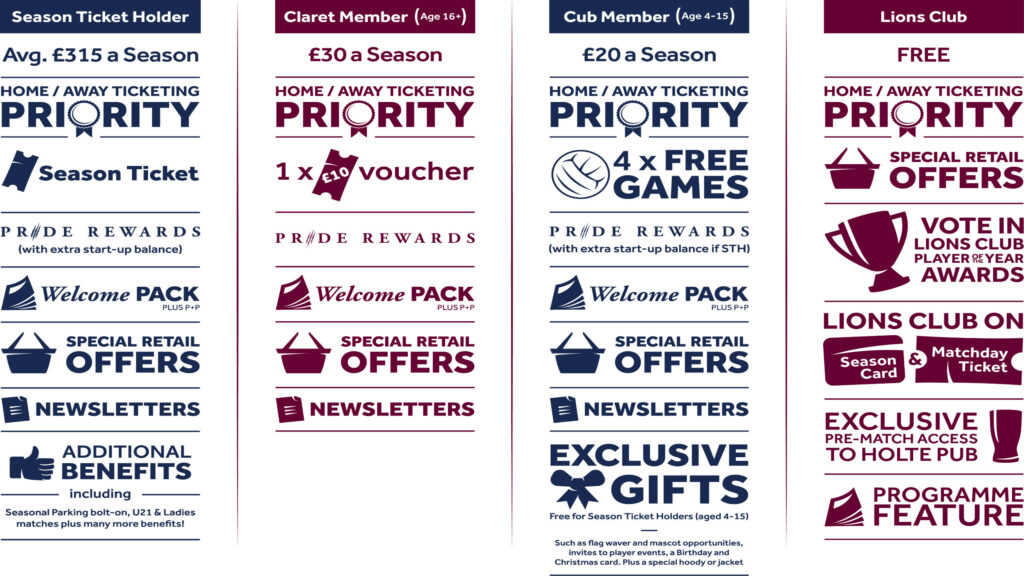It’s not the owner, manager or star player that is the biggest asset for any sports club, but instead, it is the fans. Without them, the whole sports club from bottom to top becomes redundant. Fan engagement is somewhat of new term in the marketing world with limited literature on the subject, however, its significance cannot be undervalued. It is integral for any person who has a crucial role in the sports club to understand how best to communicate and engage with the fans effectively.
Establishing long-term relationships with fans will prove to be pivotal to sustain the success of any club, and we cannot rely solely on the fans to be loyal, a strong emotive bond must develop. There is a responsibility within the club to maintain and enhance this bond, and this is where engagement comes into play.
One of the big challenges in the sports industry is the strong influence of an unpredictable factor such as the sporting outcome on the revenues. A highly engaged fan base is much more likely to keep attending games and buying merchandise, even if the results are not good.
A passionate and loyal fan base is a valuable asset for a sports club that makes it more attractive to potential sponsors. Data that shows how many fans are connected to the club and what their profiles and behaviours are, can help identifying the right partners and obtain more valuable deals.
Consumer behaviours are changing towards how they are following sport, and current clubs need to adapt quickly. Previously, the customer experience began and ended on the same afternoon or night, but now fans are engaging with the club on different types of platforms in many ways, meaning it is now 24/7. There is no winter break, or pre-season, or rest days for fan engagement. Especially given the sudden impact of COVID-19, the consumption of sport is set to change, at least for the short term.
What is Fan Engagement?
In simplistic terms, it is the processes that a sport club takes to create emotional, lasting bonds with their fans, before, during and after events using a variety of channels and methods. Yoshida et al. (2014) study a more conceptual meaning that engagement can be distinguished into fan activity (transactional and non-transactional) and fan role (in-role or extra-role). Although we commonly associate with transactional fan activity such as attendance, purchasing and loyalty, it is crucial to remember that fan engagement underpins a sport’s fan social behaviour and how they behave amongst fans and peers. The below figure begins to map out how we dissect fan engagement to understand why fans engage the way they do so we can begin to action that knowledge through a data-driven approach.

Above all, fan engagement needs to be appreciated so clubs can begin to build upon strategies and campaigns to create a tailored journey for fans and improve their relationship with the club.
Furthermore, fan engagement contributes to generating positive brand associations that will improve brand equity. Brand equity is a value determined by the customers’ perceptions of a brand, and many studies prove that, when positive, it is associated with a higher loyalty.
Different Types of Fan Engagement
The Live Experience
That feeling of excitement a fan gets when entering the stadium is unmistakable, and it will go a long way to making sure that fan returns, but a sports club need more in their arsenal. The live experience remains the Holy Grail for any fan, and how you manage engagement during this time is a high priority. Whilst many fans will continue to support their club through thick and thin, there is still a large portion of fans that come for more than just the result. They want a show, they want entertainment. Sports clubs can work on the stadium experience, with a pre-match and half time shows with special lighting and adrenaline-pumping sound systems or fan-led participation features.
Liverpool’s Anfield stadium and Borussia Dortmund’s Signal Iduna Park are prototypes for generating atmosphere that will bring goose bumps, and ultimately more fans to the stadium. But the experience begins way before the fan takes their seat. Even prior to the match, fans can gather in the designated fan areas where big screens, games, beers, and welcoming staff rejoice. All this experience contributes to their day attending your club, and you do not want to leave them short-changed. The growing inclusion of WiFi within stadia has helped develop pre-match zones so fans have all they need to relax, enjoy, and prepare for the event but it’s use can go further. WiFi sign-up portals provides a subtle data collection point for clubs to expand their database with contacts who would not otherwise engage.

Fundamentally, the experience should be creating memories. How fans react post-match through sharing, social media, feedback and emotions will demonstrate the success or failure of the live experience. Even though the final whistle goes, this does not mark the end of opportunities for clubs to engage with fans. Post-match surveys for season ticket holders, regular visitors and new attendees can all offer vital information as to how each fan perceives the match day experience not only from an entertainment stance but to customer support, visiting the shop and catering.
Thanks to rich data, you can develop a tailored match day experience for your fans, generating positive memories, and increasing their satisfaction. Furthermore, they can support your partners in the planning of targeted activations to drive more engagement and contribute to the overall experience.
Many scientific studies prove how satisfaction is one of the key factors that drive retention, and that satisfied fans are more likely to generate positive word of mouth.
CRM
The notion that the fans are one may be true to an extent, but there are times where the fans wants to be recognised as an individual supporter of the club. The club doesn’t want a relationship with the fans collectively, but instead wants to develop a relationship with all fans on a personal level. For example, a social media post urging fans coming to the game the following Saturday is different to contacting someone via a personalised email inviting them back to the stadium.
Not all the fans are the same, and there are multiple reasons why they attend a match. Some go to the stadium to enjoy the social interactions that the venue and the event offer, some like to feel affiliated to a social group such as the fan base, some are looking for the excitement, drama and entertainment of a match, some want to enjoy a day out with the family, some look for an escape from the everyday life.
Using the Jonas Sports Data Hub marketers can begin to build strategy-based campaigns targeting the right product, to the right fan. We can begin to breakdown fans to create smaller audiences to build the basis of real personalisation. Only through combining the right message with fan’s personal details can we envisage a 1:1 communication with individual fans and remove the collective nature. For example, below demonstrates personalised subject lines promoting a season ticket campaign:
- For season ticket holders – ‘Sam, we know you love to renew and it’s that time again!’
- For regular visitors – ‘You attended 5 games last season, show your support all season’
- For one-time visitors – ‘We’ve seen you in the stands, keep coming!’
Each email can use data to personalise, so you can address them by their name, their address (if appropriate) and what their preferences are. The level of personalisation is determined by the data quality and quantity of each fan, so data collection is key to giving the bigger picture of each individual. Measuring their engagement through communications can help tailor their customer journey further. Fans often clicking through to the online retail store can be identified and nudged towards purchasing with an incentive and alternatively, those who do not can be removed so they do not feel bombarded. Each journey for each fan will change based on their behaviour, it is important to acknowledge that to become personalised.
Recognise and Reward Loyalty
Every fan should be engaged with, but there is a greater importance in how the loyal supporters are treated as they are the core of your fan base. It’s critical to recognise the key fans of your club, and reward their loyalty suitably. Memberships and season tickets are two similar ways for fans to feel more than just a spectator.
If your sports club is more than just a match day experience, and it also involves a club shop, hospitality and/or other community events, then a membership card would be an ideal option. A membership card holder can have special discounts when purchasing anything directly from the club whether it will be a replica football shirt, entrance to the club museum, or discounts of the hospitality lounge at the next home match. It can work in a loyalty points system which works well in other industries that rewards the fan the more they purchase. The major draw for the fan is the endless amount of benefits, and the advantage for the club is having a longer lasting relationship established.
Similar to a membership card, season ticket holders can also be rewarded for their loyalty. These are fans that care more about watching their team on a weekly basis, more so than receiving benefits. They still will want some recognition though. Therefore, if they were to purchase a season ticket, you can give them a first claim on exclusive club content, giving them free parking to the stadium, and inviting them to players Q&A and forums, as well as many other options. These fans are the life and soul of your club, and they need to be appreciated.

24/7 Interaction
Many fans may associate themselves with a club, but do not necessarily attend many matches. Despite their absence on match days, their voice is still equally important and needs to be engaged with. The digital age has allowed a 24/7 interaction between the club and the fans, and it is the duty of the club to bring fans closer to the live action and feel connected.
Fans that don’t attend aren’t wasted fans, commercialisation of sport has seen the emergence of ‘armchair fans’ which have brought greater value to both club and fan base. Foreign fans have also been unearthed and engaging them provides an exciting and valuable challenge. Crossing time zones, hunger for content and various lifestyles all need to be considered by the club’s engagement activities. These fans may not purchase tickets, but nothing is stopping them from shopping online occasionally for merchandise and kits, which is an objective you should be wanting to reach, before converting them to returning customers being the final goal.
For example, running social media competitions can collect data to enter, pixel tracking can follow fans across email and social platforms, and emails can direct fans towards match highlights ahead of a game. Fans are directly or indirectly a representation of your brand, your sports club, so the more they are seen, the more aware everyone is of your club.
Jonas Sports helps sports rights holders leverage fan data and provides expert software and services for Fan Engagement, Retail, F&B and Payments. Please get in touch to find out how we can help engage fans and drive revenues at your club.
